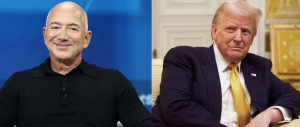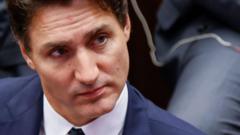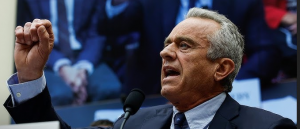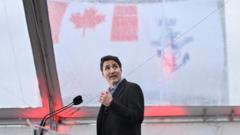**Justin Trudeau's administration is under scrutiny following the abrupt resignation of Chrystia Freeland, with increasing pressure from party members and opposition leaders amid potential U.S. tariffs.**
**Trudeau's Leadership in Crisis: Fallout from Freeland's Resignation Amid U.S. Tariff Threat**

**Trudeau's Leadership in Crisis: Fallout from Freeland's Resignation Amid U.S. Tariff Threat**
**Canadian Prime Minister faces internal party calls for resignation after finance minister's unexpected exit and looming economic challenges.**
Canadian Prime Minister Justin Trudeau is grappling with a significant political crisis following the unexpected resignation of his finance minister, Chrystia Freeland. Her departure not only blindsided the government but also sparked a wave of calls for Trudeau to resign, including from within his own Liberal Party. Freeland's resignation letter, which coincided with a crucial scheduled economic update, criticized Trudeau for prioritizing “costly political gimmicks” rather than adequately responding to threats of tariffs posed by incoming U.S. President Donald Trump.
Trump, who will assume office in January, has promised to introduce a 25% tariff on imported Canadian goods unless Canada strengthens border security. This threat has raised concerns among economists about the potential detrimental impact on the Canadian economy. Following Freeland's exit, Trudeau acknowledged the challenges of the day without directly addressing her resignation, stating, “It has not been an easy day,” during an event with party donors.
Freeland's decision followed Trudeau's indication that he no longer wanted her to continue as the government's principal economic adviser. The situation has led observers to criticize the government for appearing "confused and uncertain," especially with Freeland's perspective resonating more with Mexico's assertive stance against Trump’s tariff threats.
Political experts highlight the tension and divisions among U.S. allies, with Canada currently facing a dilemma on whether to confront Trump’s positions or to seek a diplomatic approach. Trudeau's previous efforts to strengthen ties with Trump, including a visit to Mar-a-Lago, have come under scrutiny as his government battles internal dissent and declining popularity.
As Trudeau faces pressure not only from Liberal party members but also from leaders of Canada’s three opposition parties — including Conservative leader Pierre Poilievre's call for immediate federal elections — the prime minister's leadership is at a crossroad. Opinion polls reflect a significant drop in Trudeau's approval ratings since his initial election, from 63% to approximately 28%, further exacerbating the fear of potential electoral defeat by the Conservatives.
After a tense caucus meeting post-Freeland's resignation, Trudeau reportedly acknowledged calls for his resignation but conveyed intentions to reflect on the situation rather than resign immediately. Amid concerns of chaos within his administration, provincial and territorial leaders met to assure the public of stability in Canada and address the looming tariff threats.
On a challenging day for the Trudeau government, the current political landscape continues to evolve with urgency as the pressure mounts both domestically and from external economic forces.




















